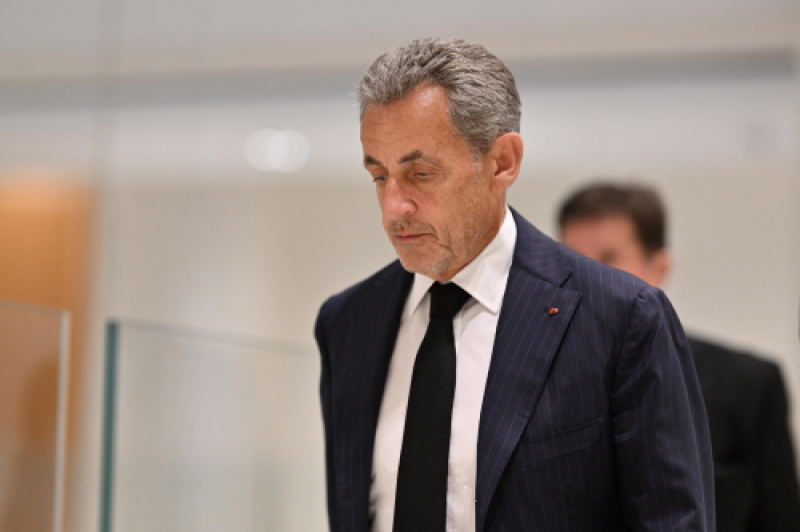- Human Rights Record ‘Alarming’ Over 17 Months, Says HRSS |
- Tarique Warns of Deep Plot, Urges Vigilance Nationwide |
- Son of late ruler Gadhafi is killed in Libya |
- Special prayers, foods, charity mark Shab-e-Barat in Old Dhaka |
- Exiled Awami League Leaders Plan Political Comeback from India |
Foreign funds in the French ballots - TI

Former French President Nicolas Sarkozy leaves the court after standing trial for allegedly receiving illegal finances for his presidential election campaign in 2007. Photo- Mustafa Yalcin-Anadolu-AFP
What should be the consequence of illegal foreign money getting into a democracy's election process? This week, France faces this question head-on as the trial of former President Nicolas Sarkozy begins. Sarkozy is accused of receiving €50 million in illegal campaign funds from Libya's Moammar Gadhafi for his 2007 presidential bid – more than double the €20 million legal limit.
These funds allegedly funnelled through intermediaries, reveal troubling connections between politics, diplomacy and economic interests. Sarkozy, who denies all the accusations made against him, faces charges of passive corruption, illegal campaign financing, hiding embezzled public funds and criminal association. While this is not the first time French politicians have faced allegations for dubious foreign funding – such as the 2014 loan to a presidential campaign from a Czech-Russian bank – this case is by far the largest political finance scandal in French history. The scale and involvement of high-ranking officials make it unprecedented, with twelve individuals, including three of Sarkozy’s former ministers, standing trial.
Transparency International France joined forces with civil society organisations Sherpa and Anticor to claim legal standing in the trial. At the heart of their efforts is the mission to amplify the voices of corruption victims, both in France and abroad, whose interests and suffering are too often overlooked. The organisations are calling for accountability for all involved parties: politicians, companies and financial intermediaries. This, in addition to urging deep reform of political financing and stricter regulation of financial intermediaries.
This trial highlights a global issue that goes far beyond France. Corruption continues to creep into politics through illicit funds, foreign interference, opaque donations and shady companies in Europe and worldwide.
Over two-thirds of countries globally require political parties and candidates to report their campaign finances. Yet, transparency remains alarmingly low. A 2021 survey of 109 countries found that one in three did not even require the publication of financial reports. Among those that do, only 36 countries publish detailed donation information online, including timing, amounts and donor identities – but not France. Even fewer, just 19 countries, published that information with common identifiers, making it nearly impossible to trace the flow of illicit money.
To clean up politics and end dirty donations, TI launched last December new global standards for integrity in political finance. National laws that meet these integrity standards will stop illicit money from corrupting democratic processes, ensure voters are informed about whose money influences politics and promote a level playing field in elections.
We stand with Transparency International France and will closely follow the trial’s developments. The fight against corruption does not stop here. We call on the Conference of State Parties (CoSP) to the United Nations Convention against Corruption to adopt standards for improving transparency in political finance, based on our policy recommendations.
At the European level, we have also been calling for the EU’s Anti-corruption directive to include measures that regulate and enhance transparency around the financing political parties, candidates and third parties.
Through global reform, we can create a future where democracy is free from the grip of illicit money, and where integrity and transparency are the cornerstones of our political system, ensuring that the interests of the many are not drowned out by the wealth of the few. – Transparency International

